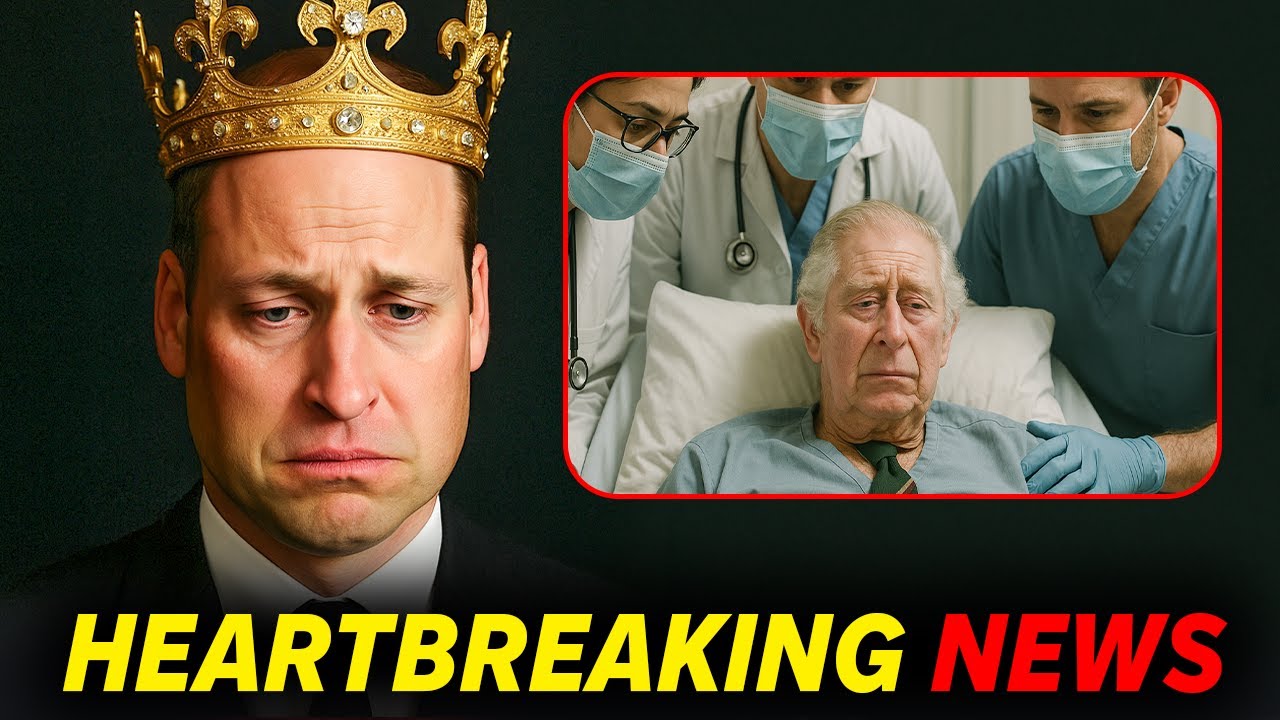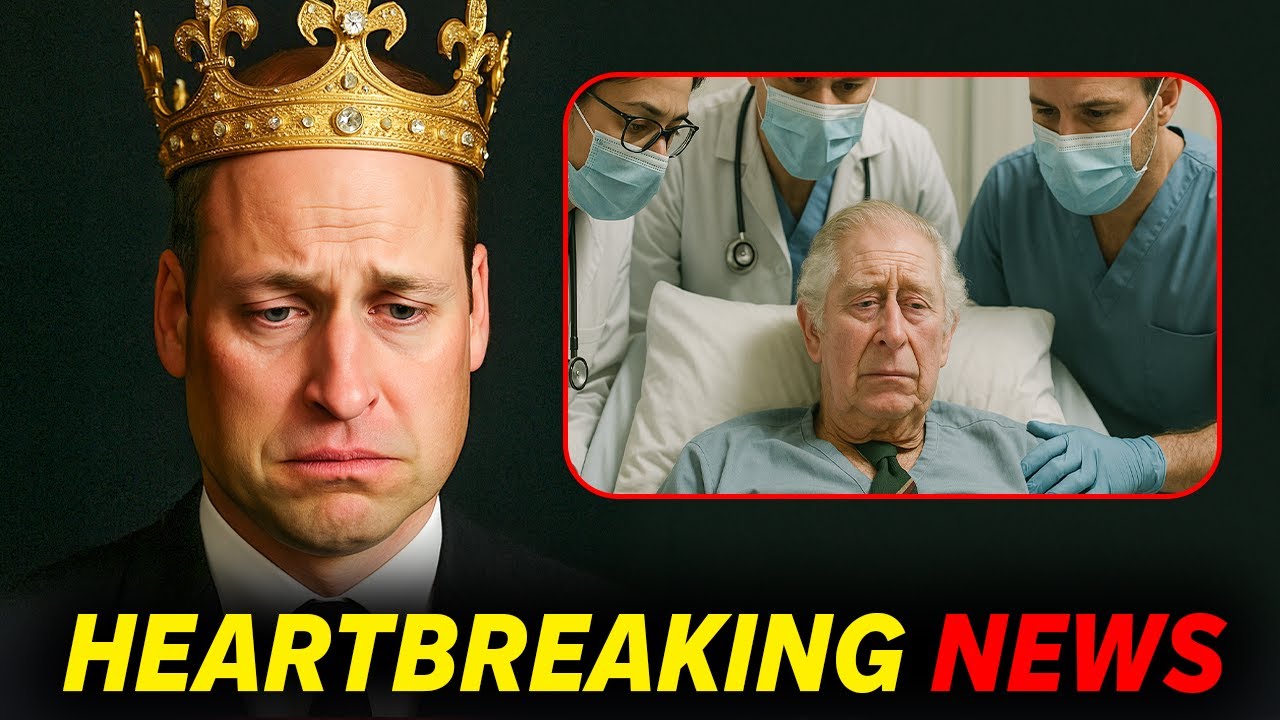DOCTORS CONFIRMED: William Takes Control As King Charles Deteriorates
In a shocking update from Buckingham Palace, royal doctors have confirmed a concerning decline in King Charles III’s health—prompting Prince William to quietly begin taking control of royal duties behind the scenes.

According to a source close to the palace, King Charles, 76, has been battling ongoing health complications that have recently worsened. While official statements remain vague, insiders report that the monarch’s condition has reached a point where his ability to carry out daily responsibilities has been significantly affected.
“The King is still very much involved in decision-making,” a royal aide said. “But the truth is, his energy levels are not what they used to be. Prince William has been stepping in more and more—attending meetings, representing the Crown, and coordinating with senior advisors.”
Over the past several months, royal watchers have noted a shift in the public role of the Prince of Wales. From leading state visits to delivering key speeches at national events, William has been taking on more high-profile duties traditionally reserved for the monarch. His increasing presence signals what many now view as a soft transition of power.
Behind palace doors, the royal family is said to be preparing for all possibilities. A contingency plan, informally referred to as “Operation Regency,” may be activated if the King is deemed unable to fulfill his constitutional responsibilities. In such a case, Prince William would assume the role of Prince Regent, effectively ruling in his father’s name.
Buckingham Palace has remained largely silent, issuing only a brief statement thanking the public for their concern and reaffirming that “His Majesty is in good spirits and continues to rest under medical supervision.”
The news has sparked an outpouring of support for the King, as well as growing admiration for Prince William, who many see as embodying a modern, balanced approach to leadership. His steady presence alongside Catherine, Princess of Wales, has reassured the nation during this uncertain time.
Royal commentator Olivia Marks noted, “This is not just a health update—it’s a pivotal moment for the monarchy. The gradual handover of responsibilities suggests a future that is closer than we thought. Prince William isn’t just preparing to be King—he’s already leading like one.”
Public reaction has ranged from sympathy to cautious optimism. While the nation is concerned about the King’s health, there is also a sense of trust in the younger generation of royals. Many view William as a symbol of continuity and strength in a rapidly changing world.
As the royal family faces this new chapter, the eyes of the world remain fixed on the monarchy—not just in concern for a beloved King, but in anticipation of what comes next.

Leave a Reply
You must be logged in to post a comment.